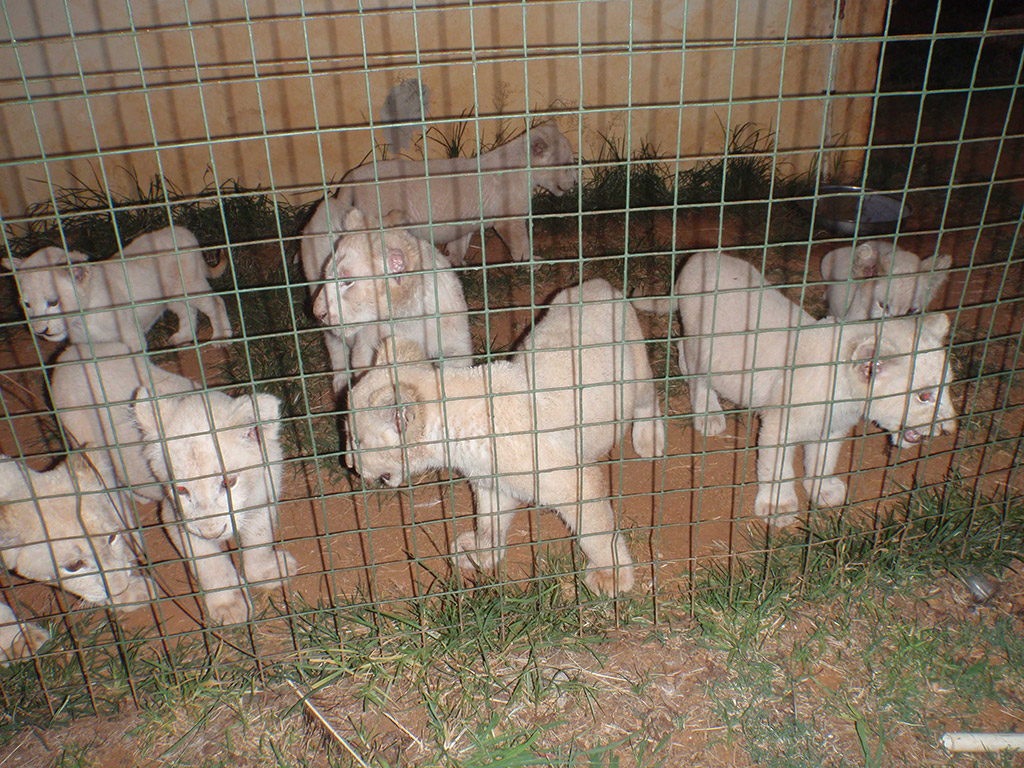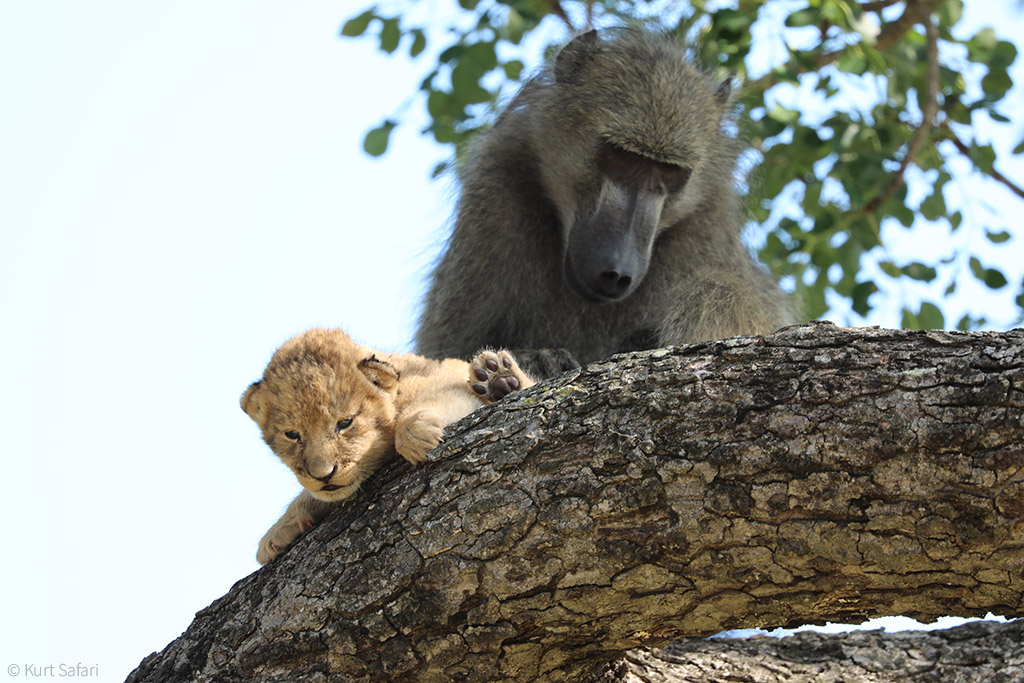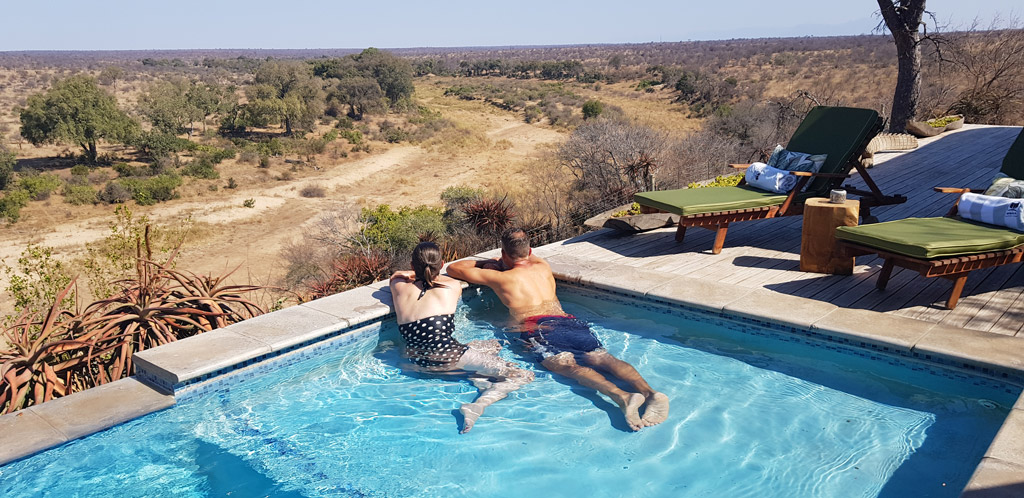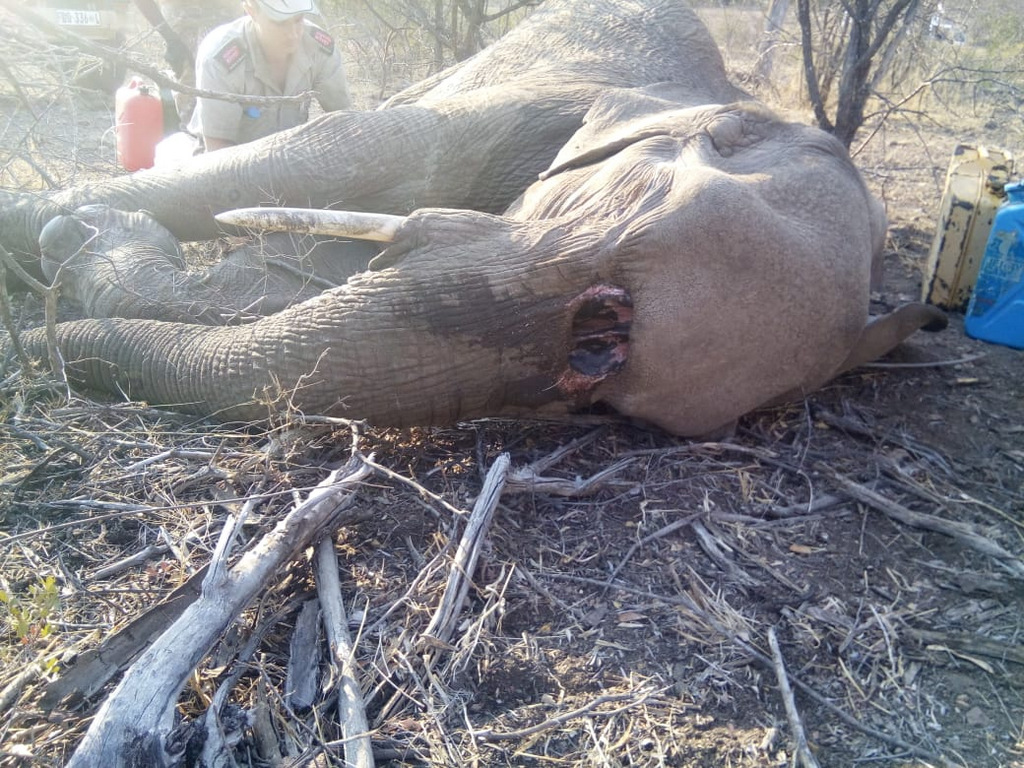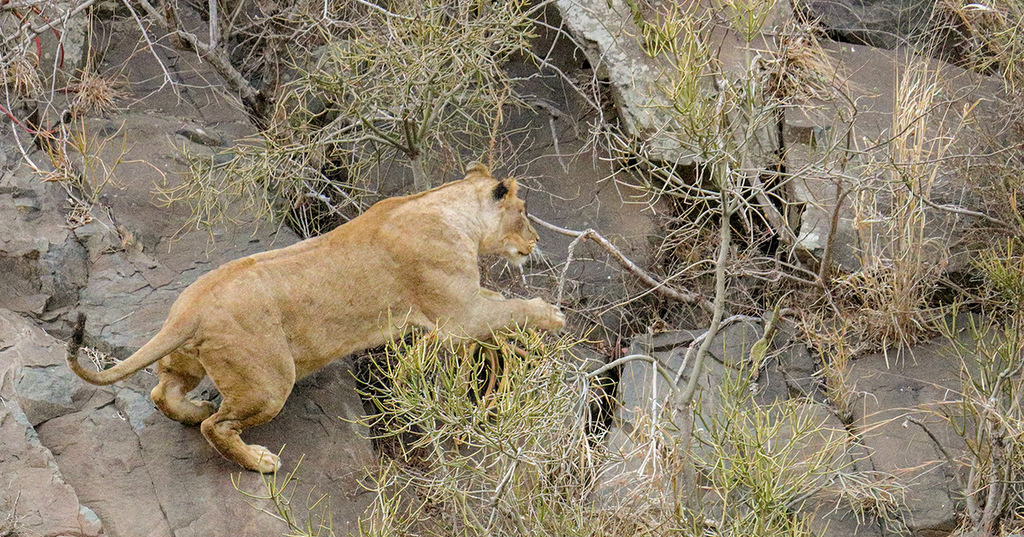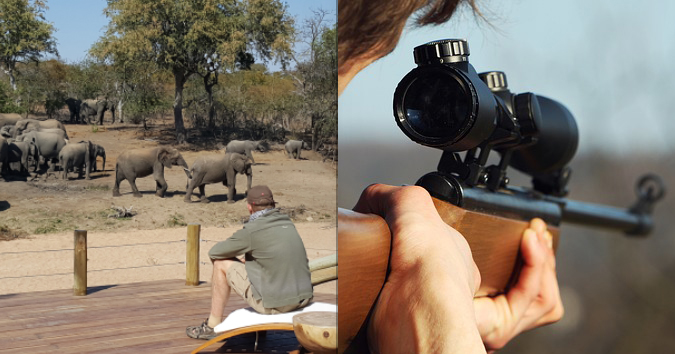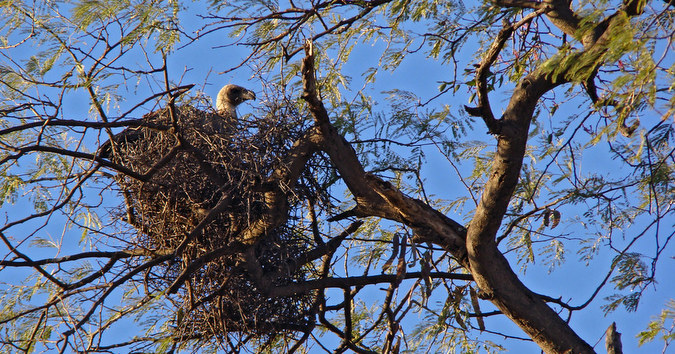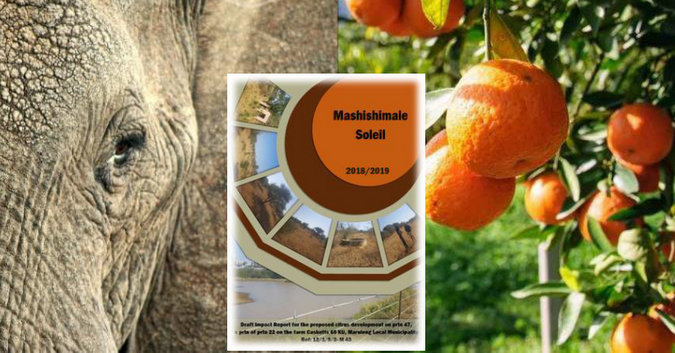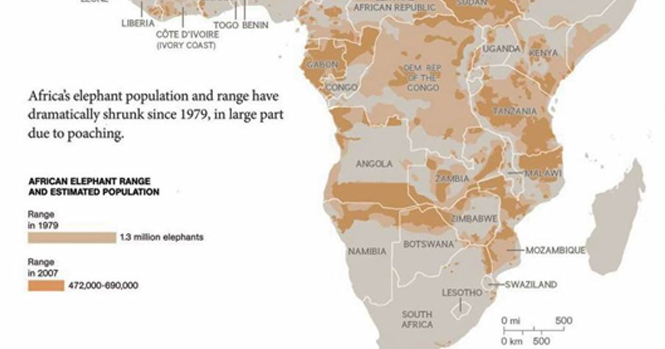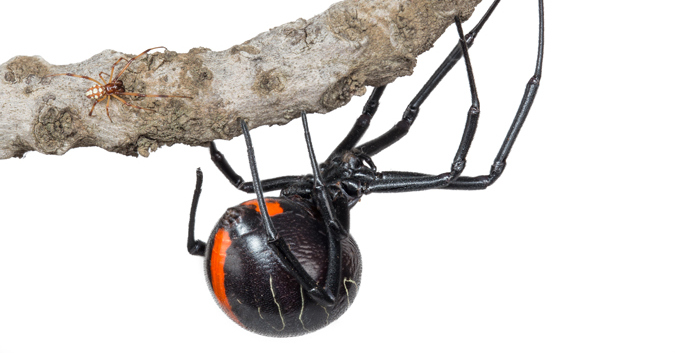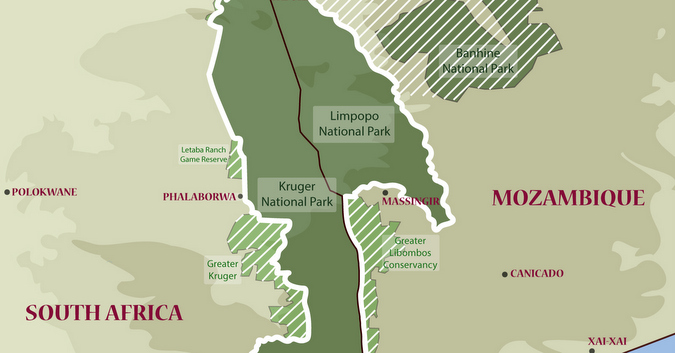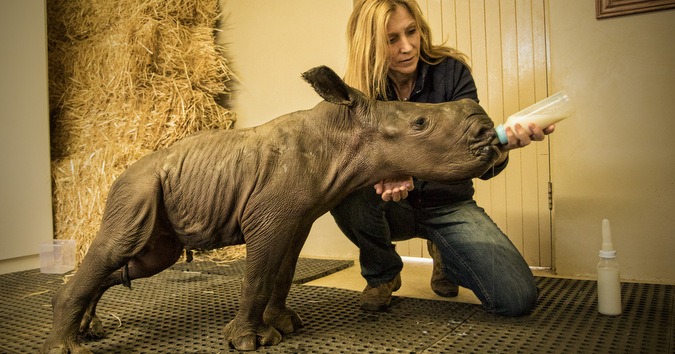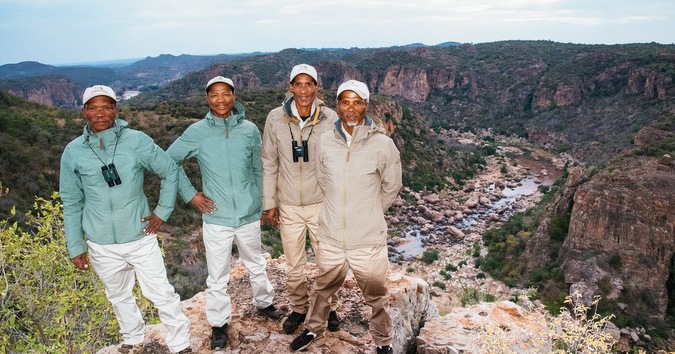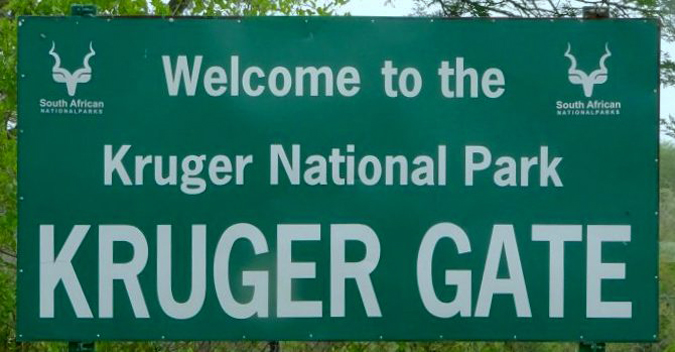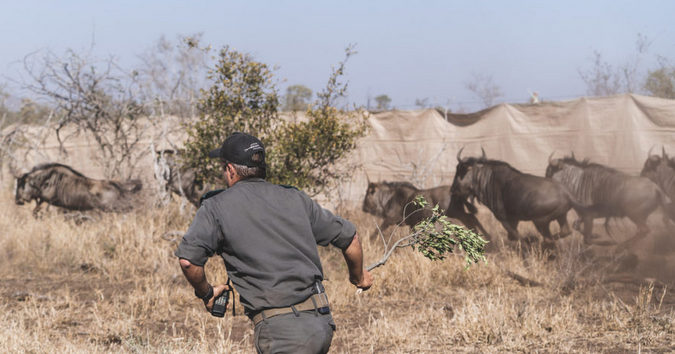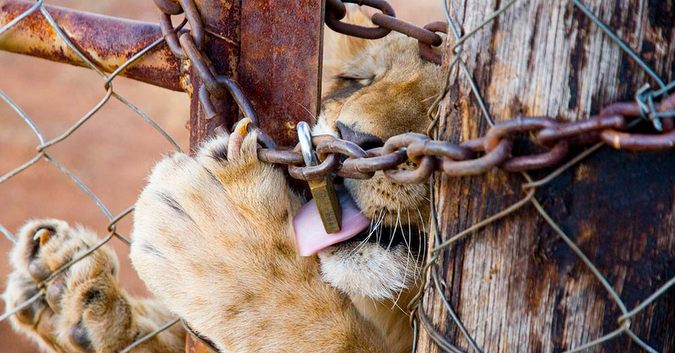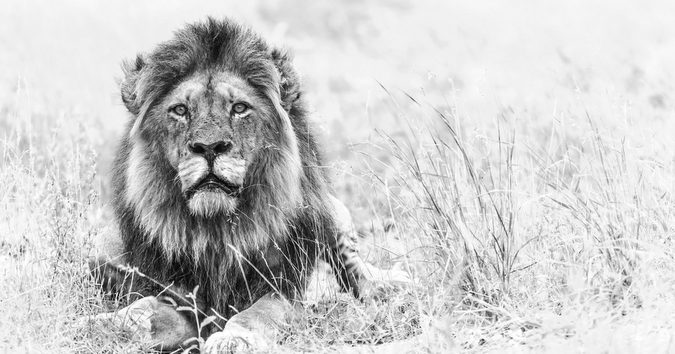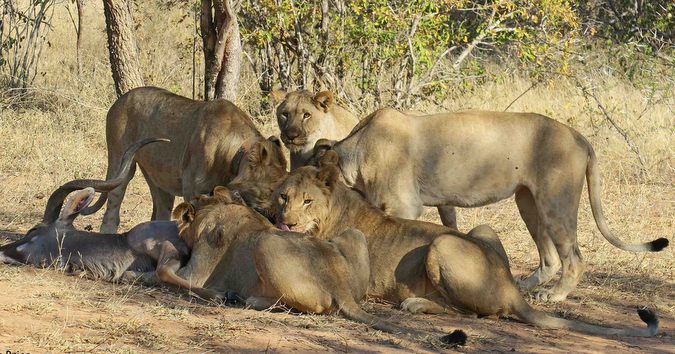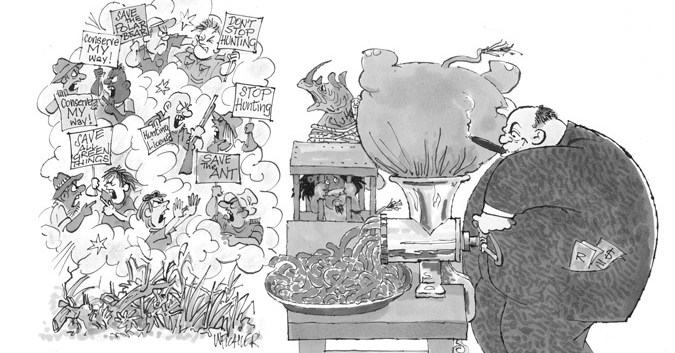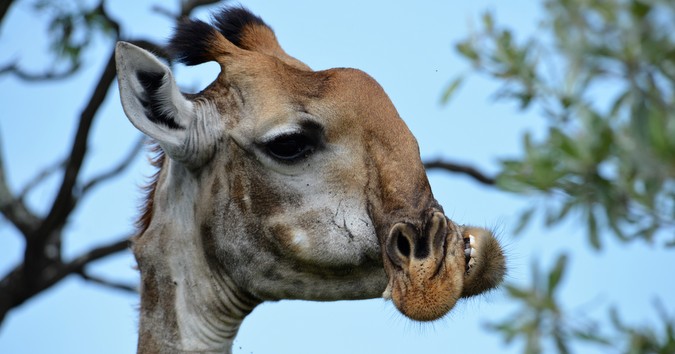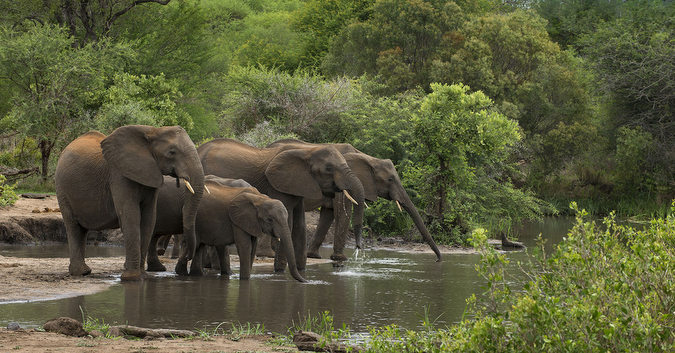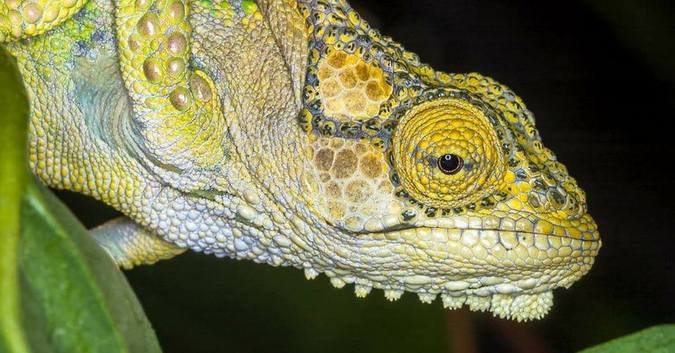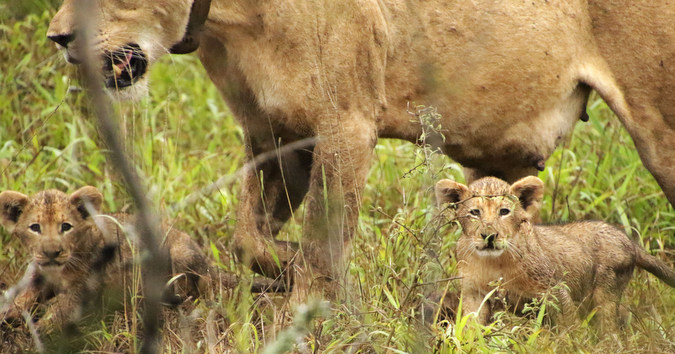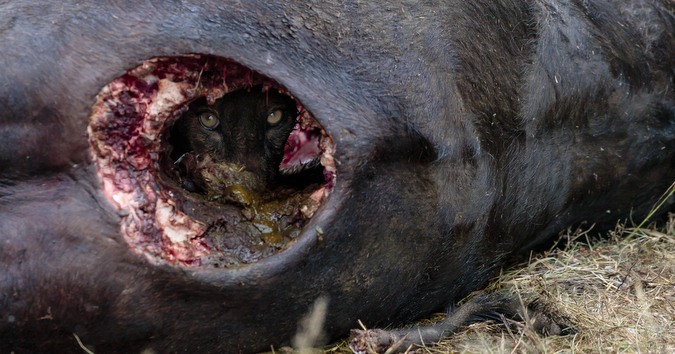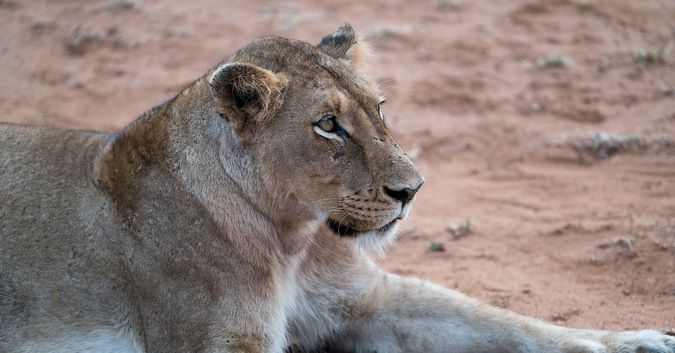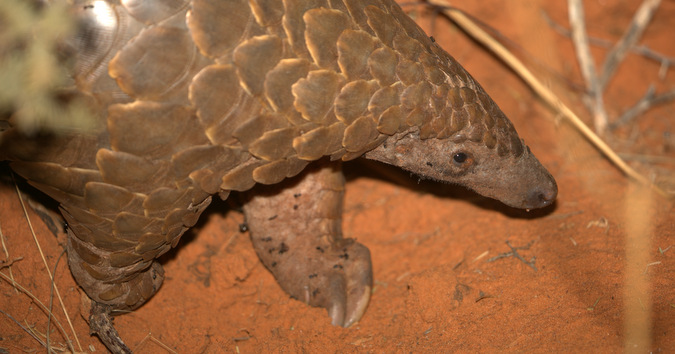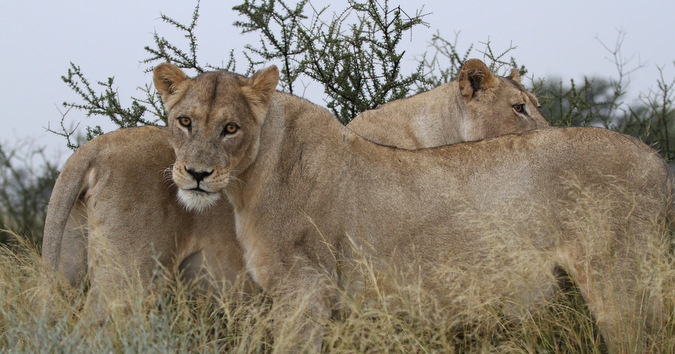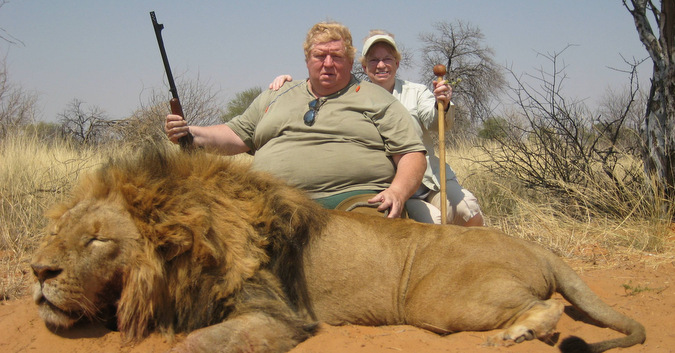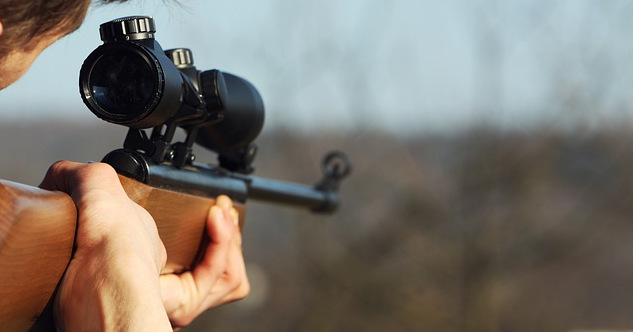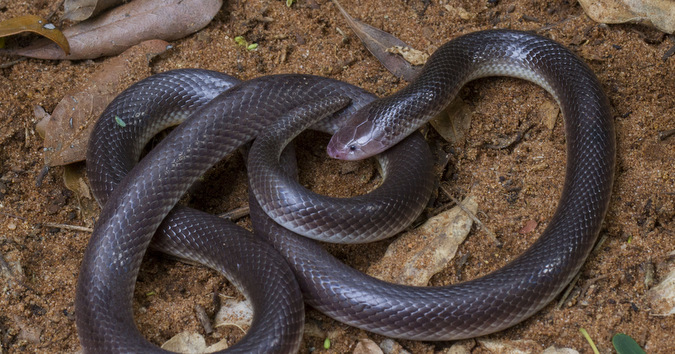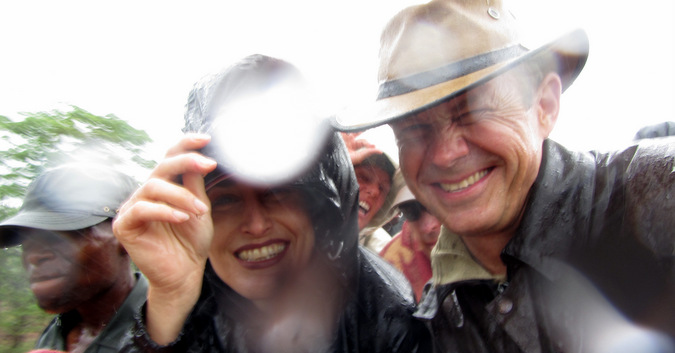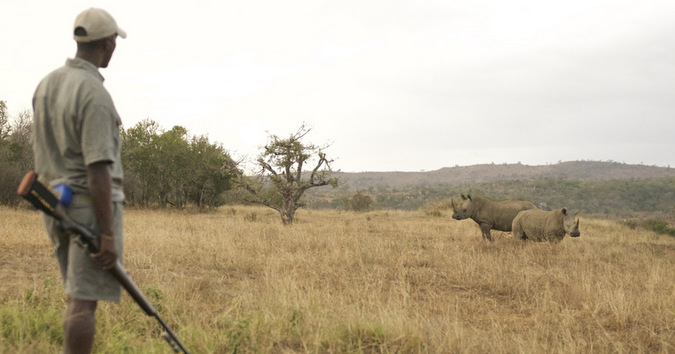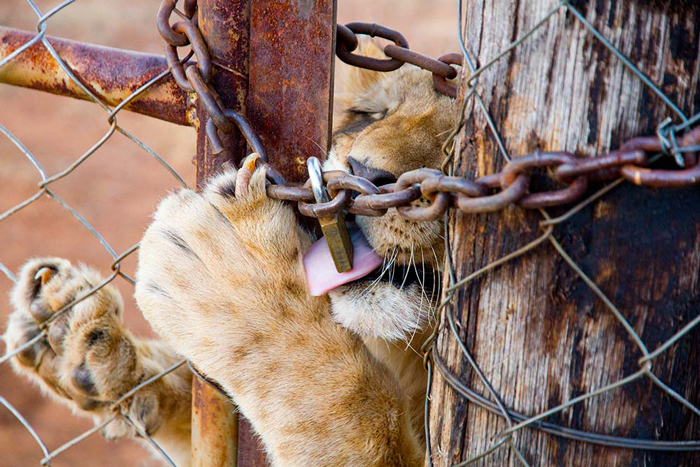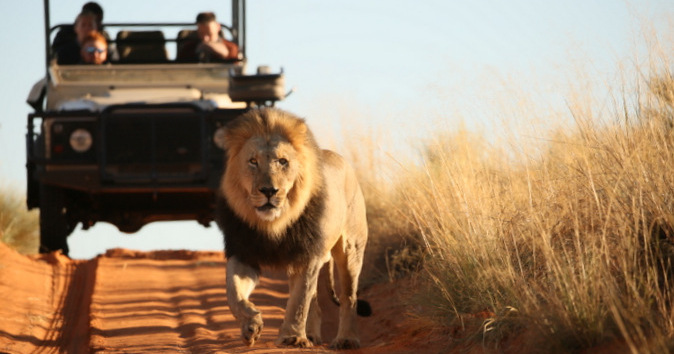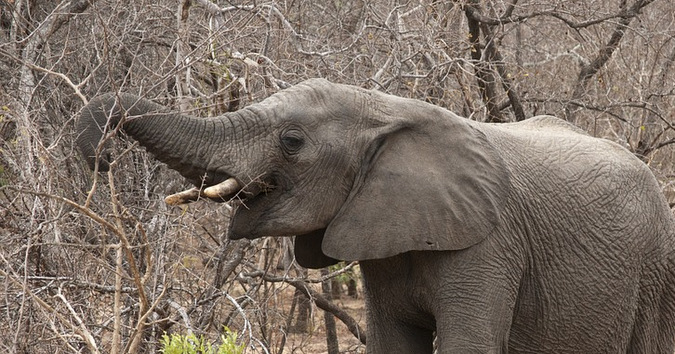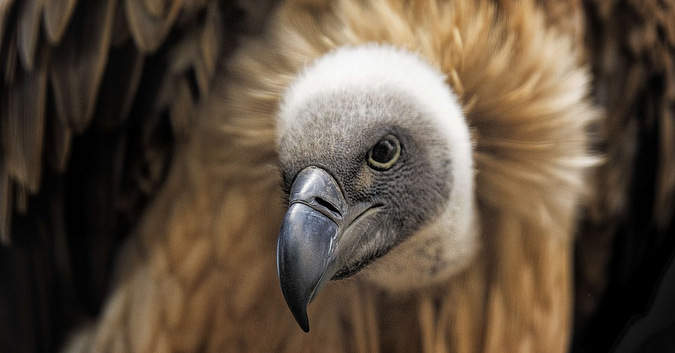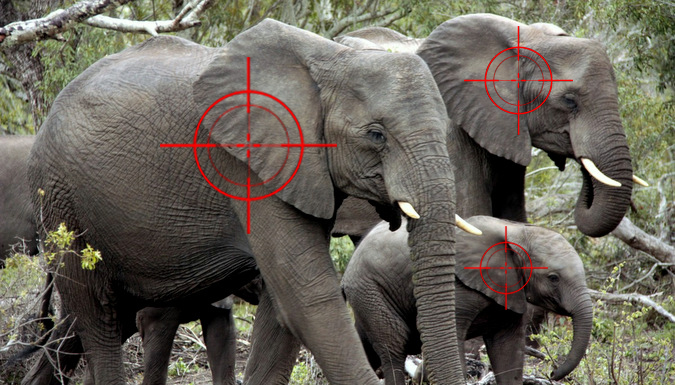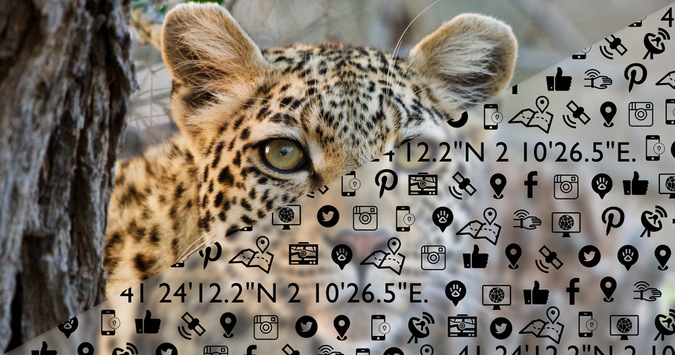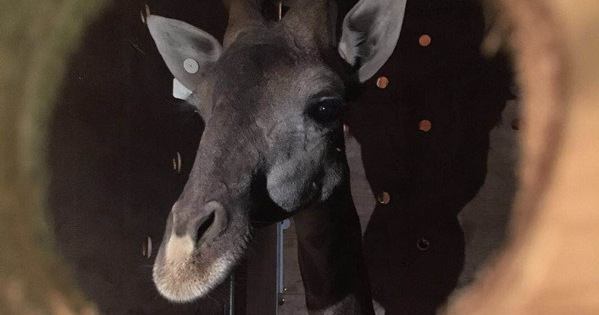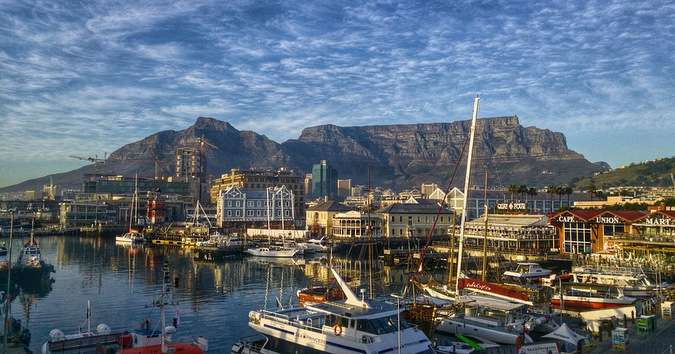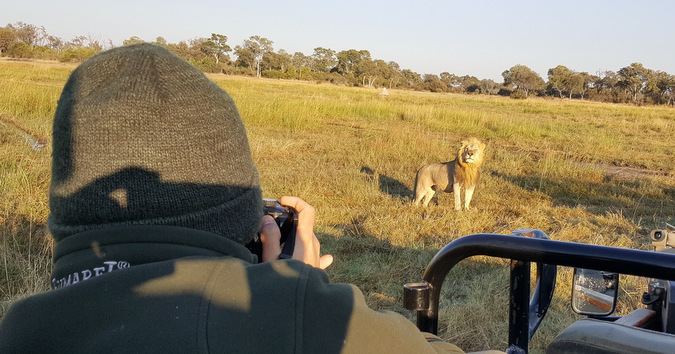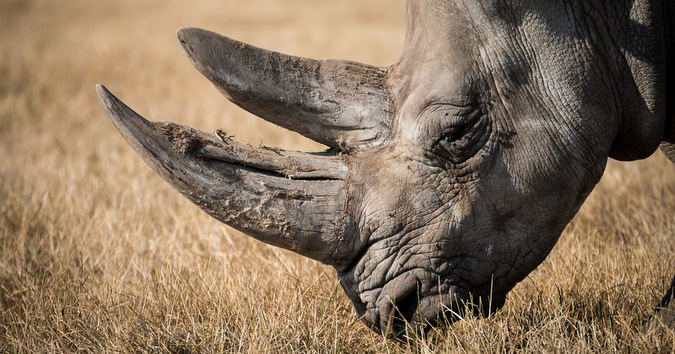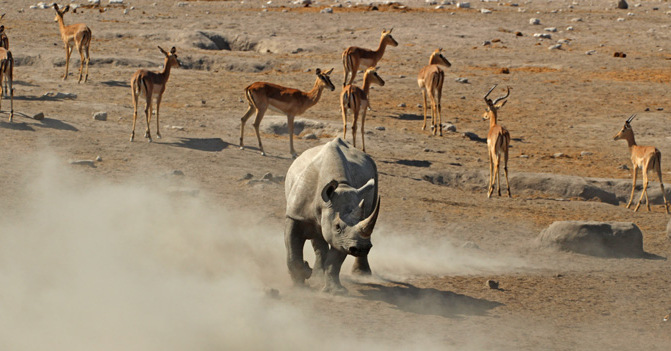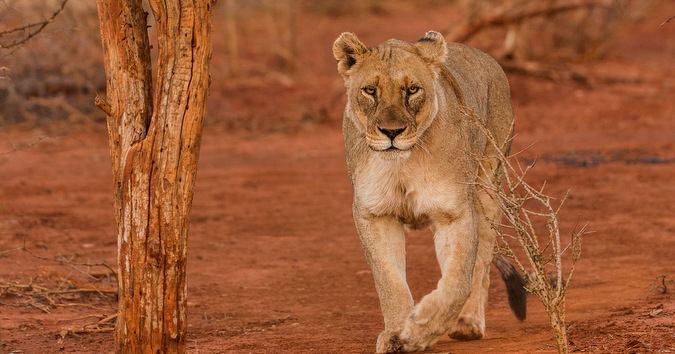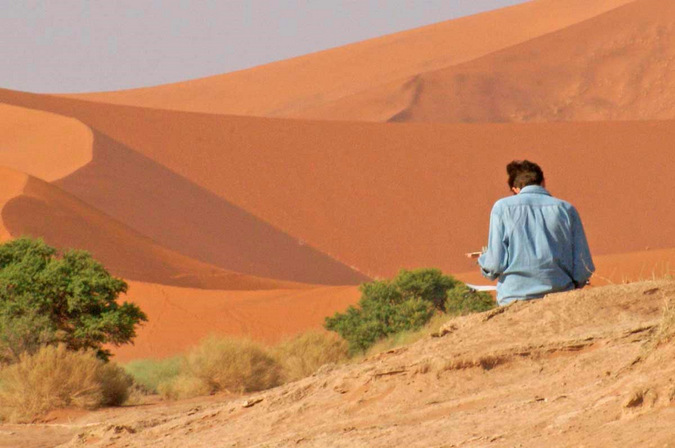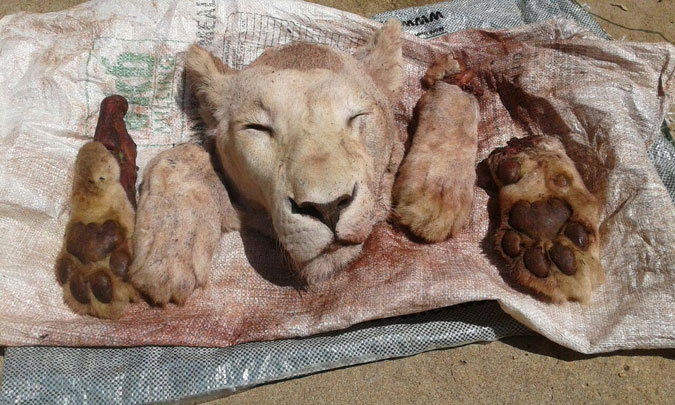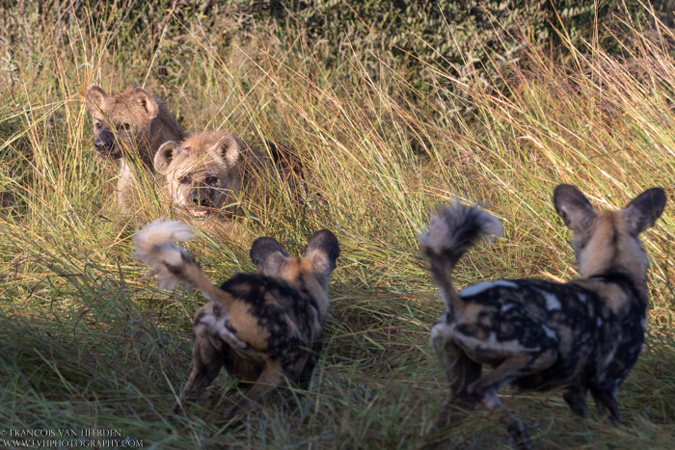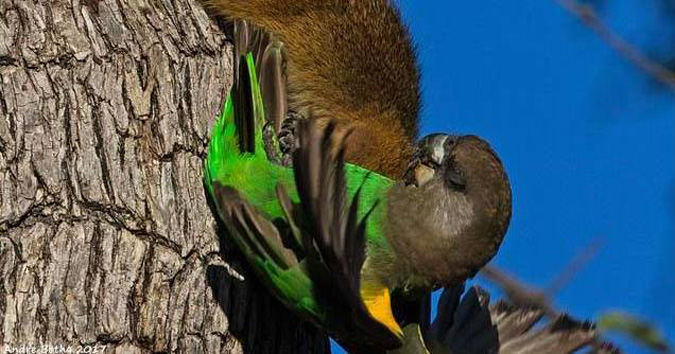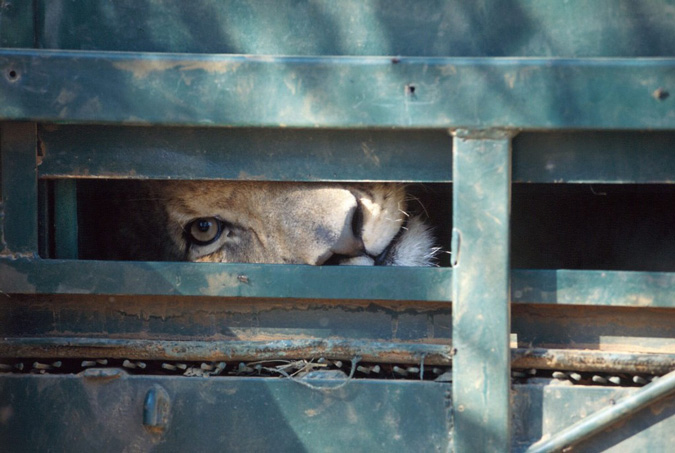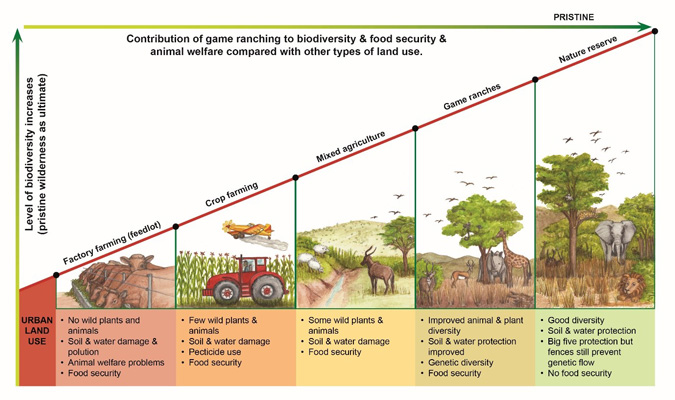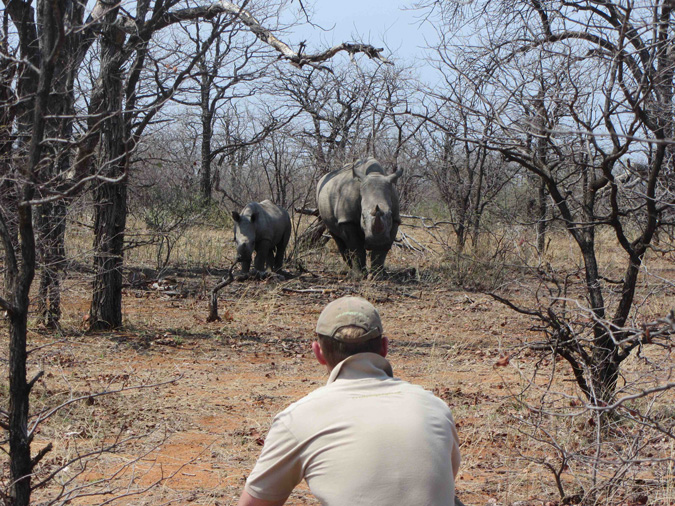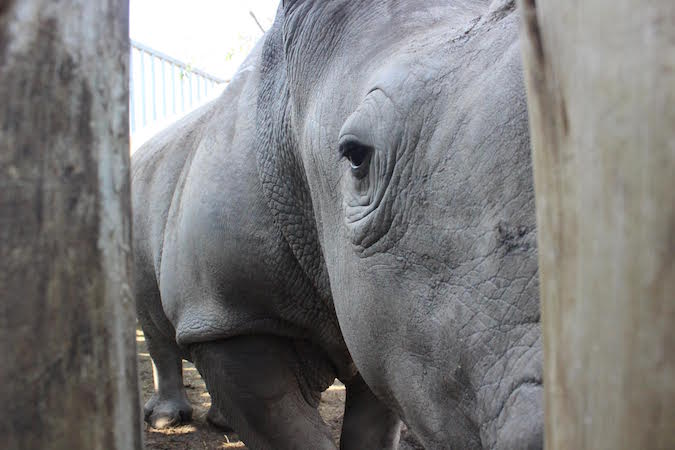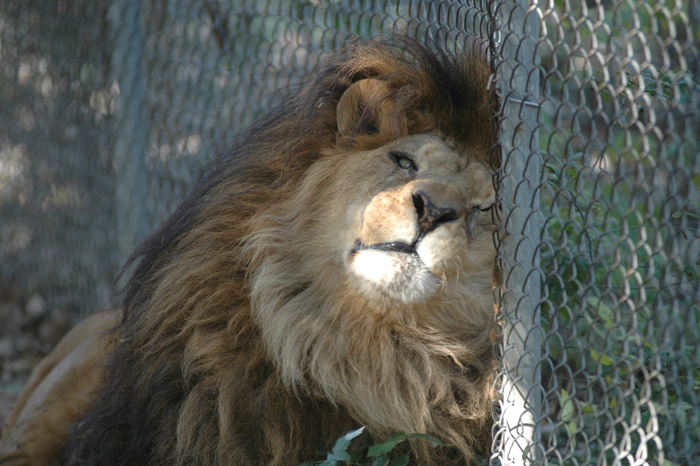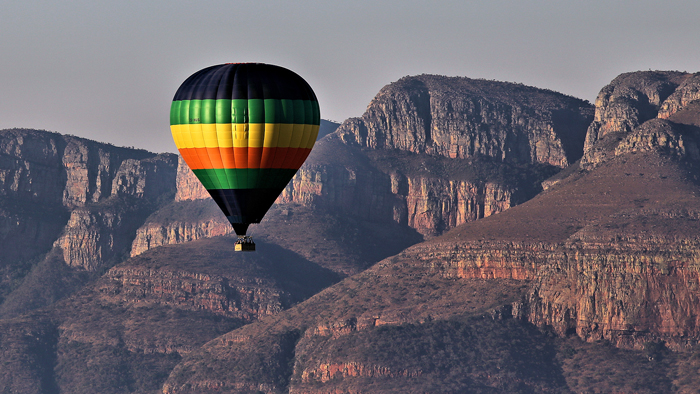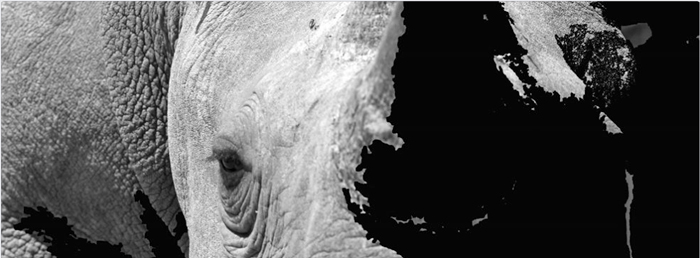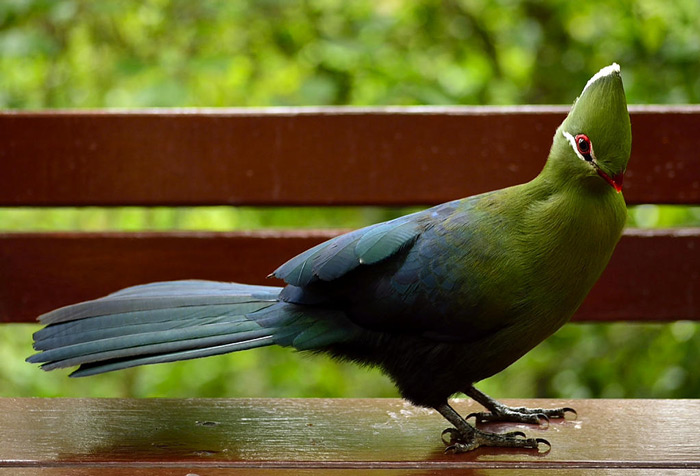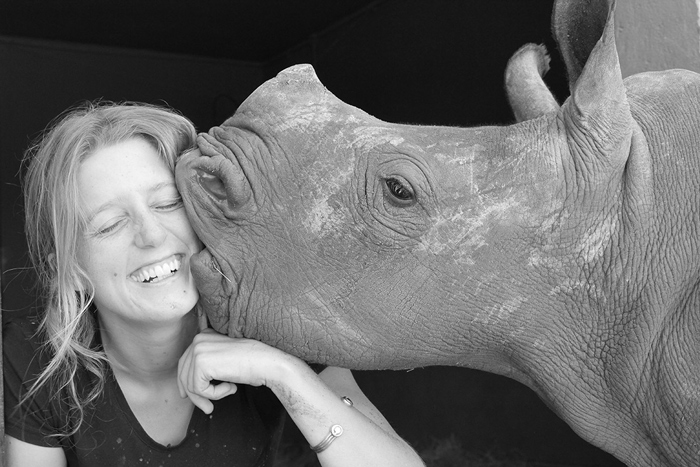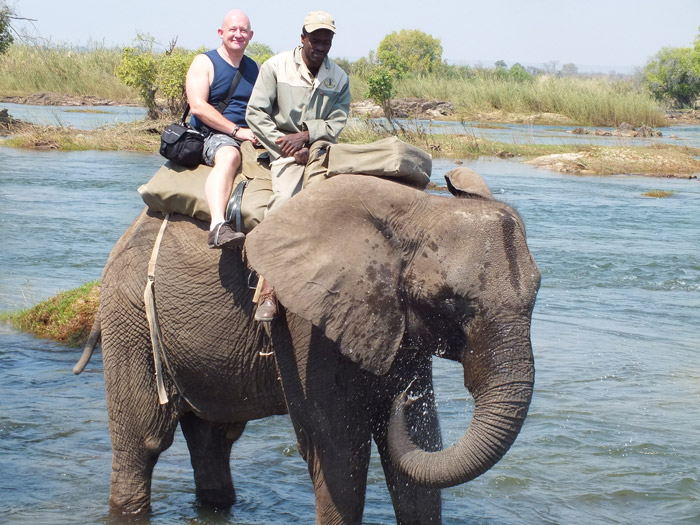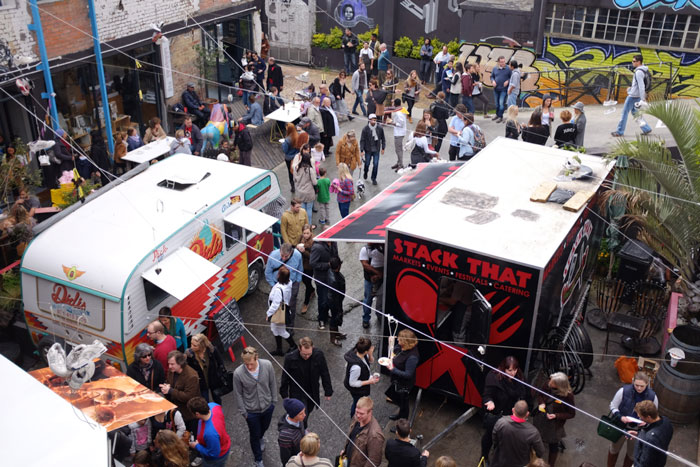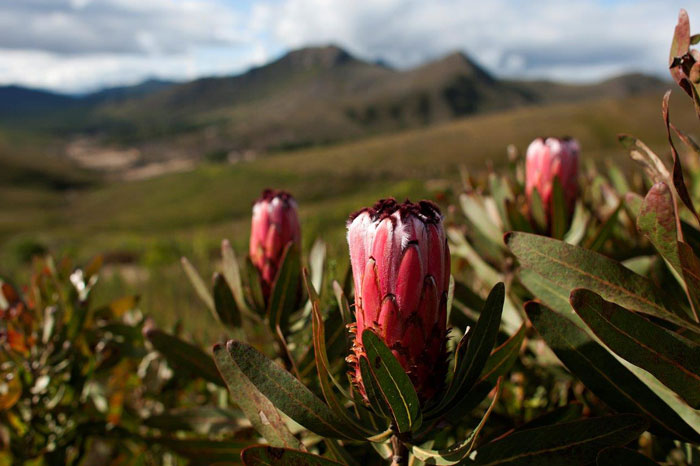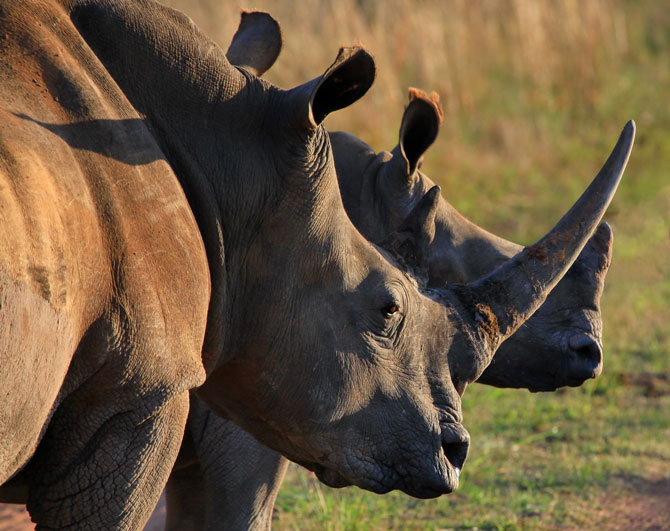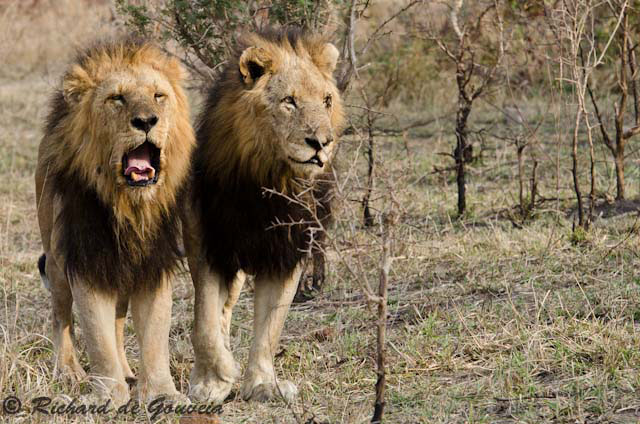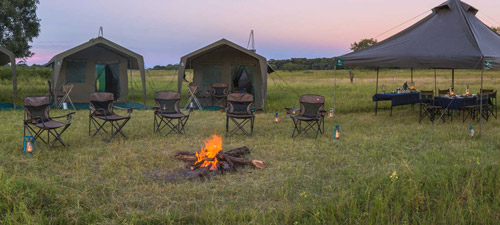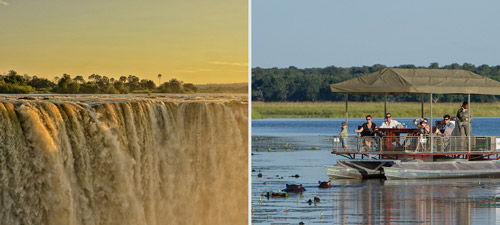The vast scale of legal and illegal trade in wildlife species between South Africa and China – many of them CITES 1 species – has been revealed by an extensive report.
Tag Archives: South Africa
Baboon kidnaps lion cub
A baboon kidnapped a tiny lion cub in the Kruger National Park, and was seen grooming the dying cub in a large tree
Greater Kruger
The ‘Greater Kruger’ refers to 344,000 hectares (860,000 acres) of protected land to the west of Kruger National Park that provides a larger area for wildlife to roam freely. This additional land is owned by private and local community property owners.
Millipedes – 10 facts that we find interesting
Giant African millipedes often have unusually brightly coloured legs and bodies.
Survival against the odds – 2 special elephants
The touching stories of two wild elephants whose struggle for survival will amaze (and humble) you, and provide a sense of perspective into the wonderful journey of life.
Skilful climbers: Lionesses scale near-vertical cliff in pursuit of prey
A great sighting as two lionesses show off their athletic climbing skills as they make their way up a near-vertical cliff face in pursuit of potential prey.
Yes or no – boycott tourism lodges in Greater Kruger because of neighbouring trophy hunting operations?
Does it make sense to boycott tourism lodges in the Greater Kruger because of trophy hunting on neighbouring properties? Our CEO answers the question.
Do elephants affect vulture nesting success? Ongoing research
Researchers highlight the complex relationship between elephant impact and vulture nest survival in the Greater Kruger National Park.
Opinion: Kruger citrus farming impact report rated as ‘poor’ – serious questions asked
The Draft Impact Report compiled for the proposed citrus farm near Kruger has been deemed ‘poor in analytical components’ and ‘unsatisfactory because of omissions or inadequacies’ according to Elephants Alive researcher.
Opinion: Loss of wilderness is Africa’s primary cause of wildlife population reductions
Lodge owner says that the loss of wilderness areas is the main reason behind reductions in populations of lions, elephants and other species.
First new widow spider species discovered in 29 years
Potentially the largest widow spider in the world has been discovered in the critically endangered sand forest of South Africa.
Big news as Kruger National Park 10-year management plan approved by Minister
South Africa’s Acting Minister of Environmental Affairs Derek Hanekom has officially approved the ground-breaking and visionary 10-year Kruger National Park Management Plan.
Here’s how YOU can make a difference for RHINOS
Our CEO has a message for those of you who want to make a difference for rhinos. Start by watching STROOP, then take action.
Tracking with the Ju/’Hoansi Master Trackers in Kruger
The last three Master Trackers of the Ju/’hoanis from Nyae Nyae in Namibia were invited to the Kruger in South Africa to participate in some pioneering trails. They came to display their extraordinary tracking prowess to guests participating in walking trails. This is an account of their journey.
Skye the lion hunting furore: Parliament wants Kruger NP agreement with private reserves revised
Environmental Affairs committee believes agreement between Kruger National Park and private reserves should be revised.
Video: 500 animals journey from Kruger to Zinave
The past two months saw the translocation of zebra, blue wildebeest and impala from Kruger National Park in South Africa to Zinave National Park in Mozambique. The overall goal is to reintroduce 7,500 game animals in Zinave over the next five years and to date over 1,300 animals have been rewilded to the park.
New survey: Lion breeding industry harming South Africa’s reputation
A nationwide survey has revealed that the majority of South Africans believe the captive lion breeding industry is harming the country’s international reputation.
Skye the lion – the beginning of the end for trophy hunting in the Greater Kruger?
The highly controversial shooting of a male lion by a trophy hunter in the Umbabat section of the Greater Kruger could conceivably mark the beginning of the end for trophy hunting in this part of Africa.
Video: Lions make a comeback
With wild lions under pressure from so many threats, this is a wonderful story of lions being reintroduced to an area that used to have lions.
Opinion: The (high) road to a Greater Kruger National Park
An alternative, constructive perspective to the Greater Kruger Protected Area is offered, in contrast to the more acrimonious narratives that are doing the rounds in response to the hunting of a lion in the area.
Giraffe survives despite deformed jaw
Despite a deformed jaw, this giraffe cow has been able to adapt and survive in the Kruger National Park.
Opinion: Timbavati increases conservation levy to fund anti-poaching and other costs
An opinion piece that touches on finding ways to increase financial contribution to the conservation effort in the Greater Kruger.
Breeding project to save the Knysna dwarf chameleon
The Knysna dwarf chameleon is a species in need of rescuing after devastating fires destroyed most of their habitat in Knysna, South Africa.
Lion relocation success: Somkhanda lions reveal their cubs
Four cubs have been spotted recently, sticking closely to their mom, at Somkhanda Community Game Reserve in KwaZulu-Natal, South Africa. This is a true success story around wild lion and their translocation to one of the only community-owned reserves in the country.
Gory splendour: Lion cub and buffalo carcass
A greedy lion cub wants the buffalo carcass all to itself!
Largest US safari club slams door shut on SA’s canned lion industry
The world’s largest hunting club, Safari Club International (SCI) has slammed the door shut on South Africa’s canned lion industry, announcing it will no longer allow captive-bred lion operators to advertise or market captive-bred lions (CBL) at its annual convention, and will reject all captive-bred lion entries for its record books.
Pangolin research in the Kalahari
Little is known about how pangolins might cope with the direct and indirect effects of a changing climate. A PhD researcher is therefore investigating the body temperature, diet, and activity patterns of free-living ground pangolins in a semi-arid environment in South Africa.
Kalahari lions: Research sheds light on population
Research has revealed that the Kgalagadi Transfrontier Park (KTP) straddling South Africa and Botswana is a stronghold for African lions.
Opinion: Hunting’s threat to conservation
An opinion piece in response to Peter Flack’s recent article that offered a hunter’s perceived threats to conservation in South Africa.
New hunting association formed after outcry over captive-bred lion hunting
A new association representing the interests of professional hunters, opposed to hunting captive-bred lions, has been formed in South Africa.
Snakebite season in Southern Africa
Many bites from deadly snakes are difficult to prevent as people accidentally stand on snakes, especially at night. But the snake that has been biting lots of people recently is the poorly-known stiletto snake, also known as the side-stabbing snake.
Safari tips: What weather to expect in Africa
While on an African safari, the weather will play a significant role in what you are likely to see (and what you’ll pack). So, here is a broad outline of sub-Saharan African climates.
Hluhluwe iMfolozi Park: Protecting the “birthplace of rhino”
Over the past few months, Hluhluwe iMfolozi Park (HiP) in KwaZulu-Natal – managed by conservation agency Ezemvelo KZN Wildlife – has been hard hit by a significant escalation in rhino poaching. Ezemvelo has subsequently been hard at work developing more effective anti-poaching and resource management strategies. In support of this, Peace Parks Foundation has committed an additional R10,6 million towards the implementation of advanced technology solutions in this sacred rhino protection area.
PHASA approves canned lion hunting, faces backlash
In a change of policy after earlier turning its back on the breeding and hunting of captive lions, the Professional Hunters’ Association of SA (PHASA) has now approved such practices. During their annual general meeting on 22 November, members voted to approve “the hunting of captive bred lions as a legitimate form of hunting”.
South Africa’s top tourist attractions
If there was a checklist for the perfect travel destination, South Africa would tick most of the boxes. Famed for its amazing wildlife and landscapes, superb local cuisine, warm hospitality and great weather, (plus the added bonus that its affordable) it’s easy to understand why tourism is so big in South Africa.
Decoding Kruger’s ‘Elephant Management Plan’
The Kruger National Park is vast, at about 2 million hectares, and requires a thorough management strategy in order to ensure long term sustainability. Part of that strategy, The Elephant Management Plan – compiled by Kruger management and Scientific Service – is currently in force, and covers the period 2013 to 2022.
49 Vultures poisoned near Kruger National Park
The poisoned bodies of nearly 50 vultures have been found by rangers in Mozambique‚ just a short distance from the boundary of the flagship Kruger National Park.
Kruger should cull 88% of its elephants, says hunter Ron Thomson
Celebrated hunter Ron Thomson believes that 88% of Kruger National Park’s elephants should be culled.
Kruger: Is this the technological future?
Presently, we are able to instantly globally share everything we see and hear in Kruger and just about every other destination on earth. Animal sightings and locations are given in real time and we are able to send photos and videos across a host of social media platforms.
66 Giraffes join thousands of other animals exported to China
Sixty-six giraffes arrived in central China’s Henan Province in the early hours of Sunday, on a chartered flight from Johannesburg, South Africa, according to local sources.
Safari tips: Understanding accommodation types
When it comes to going on a safari in Africa, you will soon discover that the selection of accommodation options is vast. From straw huts and mobile camps, to ultra-luxury hotels and lodges, your choice of where you’ll unload your bags will be influenced mainly by your needs and budget.
Kruger: Impact of social media and mobile phones – good or bad?
Technology and social media have shaped the Kruger experience into something radically different from what it was ten years ago.
Cape Town + bush safari combos
How does one exactly combine Cape Town’s summer splendours with a wild Big 5 bushveld safari? We provide four fantastic summer/autumn combos!
Best places to see wild lions in Africa
For the best chance of seeing lions in the wild, it would be advisable to head to one of Africa’s ‘lion hotspots’
Online rhino horn auction met with “disappointing” results
John Hume’s first three-day online rhino horn auction was met with “disappointing” results as there were fewer bidders than expected.
The rhino in the room: South Africa’s domestic trade in rhino horn
On the surface, the upcoming legal auction of rhino horn set to begin on August 21 might appear to be a harmless propaganda exercise, but it may in fact signal a deepening of the rhino crisis.
Is Madikwe the best malaria-free Big 5 safari experience?
After a few days in Madikwe we had already seen cheetahs, lions, wild dogs, spotted & brown hyenas, rhinos & elephants. By Marc de Chalain
Materials for your art safari
Disasters involving art materials are nothing new to me after years of travelling and sketching in southern Africa.
Lion farmers in South Africa threaten big cats worldwide
South African lion farmers are supplying large volumes of lion bone, teeth and claws as ‘tiger parts’ to an insatiable Asian market – says a report recently published by the Environmental Investigation Agency. South Africa is the world’s largest exporter of lion body parts.
Watch: Cape leopards caught on camera
The Cape Leopard Trust has caught many wondering Cape leopards in their camera traps across the remote Cape mountains and farmlands
Madikwe safari – exciting predator encounters
Plenty of predator action and large herds of elephants in this Africa Geographic photographic safari to Madikwe in South Africa
Titanic battle between squirrel and parrot
On the morning of the 30th May, I witnessed a tussle between one of the current occupants of the nest, a brown-headed parrot pair, and a tree squirrel which dared to venture too close to the nest.
Rhino horn trade: A considered justification
Rhinos throughout South Africa are being brutally killed for their horns. In this article I would like to focus on some of the positive contributions by the private sector and the trials and tribulations that they face in trying to keep rhinos safe.
Hunting body president resigns over canned lion dispute
The president of the Professional Hunting Association of South Africa [Phasa], Stan Burger, unexpectedly announced his resignation on Tuesday with immediate effect.
Private game reserves are vital for conservation
Without detracting from the wonderful and critical role that our national parks play in conservation we would like to take an opportunity to focus on the positive achievements of the private sector in this regard.
Opinion: Rhino horn trade = extinction in the wild
It is now legal in South Africa to trade domestically in rhino horn, after this country’s Constitutional Court recently overturned an eight-year ban on domestic trade, based on a technicality.
Rhino Bombshell: SA Minister plans to permit trade in horn
South African Environmental Affairs Minister Edna Molewa has declared that she plans to permit the trade in rhino horn domestically and, in what looks like a loophole big enough to drive a tractor through, the export internationally of horn for ‘personal purposes’.
USA bans trophy imports of captive South African lions
The USA government has tightened regulations about the importation of lion trophies – focusing on South African captive lion trophies
CITES votes against strongest protection for elephants
CITES meeting blocks proposal for ban on all trade of ivory from four southern African countries.
All about the Kruger to Canyon Biosphere Region
Learn all about the Kruger to Canyons Biosphere Region – a small area of South Africa with so much to offer.
Bushmeat hunting alarmingly high in South Africa
A recent study shows levels of bushmeat hunting in KwaZulu-Natal, South Africa are alarmingly high.
An open letter to point out flaws in legalising the rhino horn trade
An open letter to Mr. Hume, the owner of South Africa’s largest privately owned rhino herd, with regards to his wish to lift the CITES ban on the rhino horn trade.
Why you should care about thickets
A thicket is a dense, almost impenetrable tangle of trees, shrubs, and vines, that is home to a host of biodiversity. Here is why you should spare a thought for thickets
Rehabilitating and releasing baby rhinos
Baby rhinos need special care and Ntombi was no exception. This is her story – after 18 hack wounds from poachers who had killed her mother
12 edible indigenous South African plants
Connect to your food and the rhythm of nature in a new, fresh and wild way by growing these 12 indigenous edible plants.
Welfare of elephants in captivity comes under question
Elephants are still being ridden in South Africa, despite a growing international move away from the controversial practice
Blood Lions – a film exposing the brutal exploitation of the king of beasts
We interview wildlife campaigner Ian Michler, and filmmaker Nick Chevallier about their new film, Blood Lions.
South Africa’s street food festival
Cow cheeks, samoosas, shisa nyama, bunny chows, gatsbys, rotis and vetkoek are all on offer this year at South Africa’s Street Food Festival!
Proteas threatened by climate change
It is an uphill battle for South Africa’s national flowers as proteas face the threats of climate change.
Rhinos: It’s time for Plan B
We do not get a second chance if we get the economics of rhino trading wrong; all the rhino in the wild will be gone. It is time for a Plan B.
The legend of the Mapogo lions
Sadistic tyrants or protective fathers? The legend of the Mapogo lions lives on many years after their disappearance

